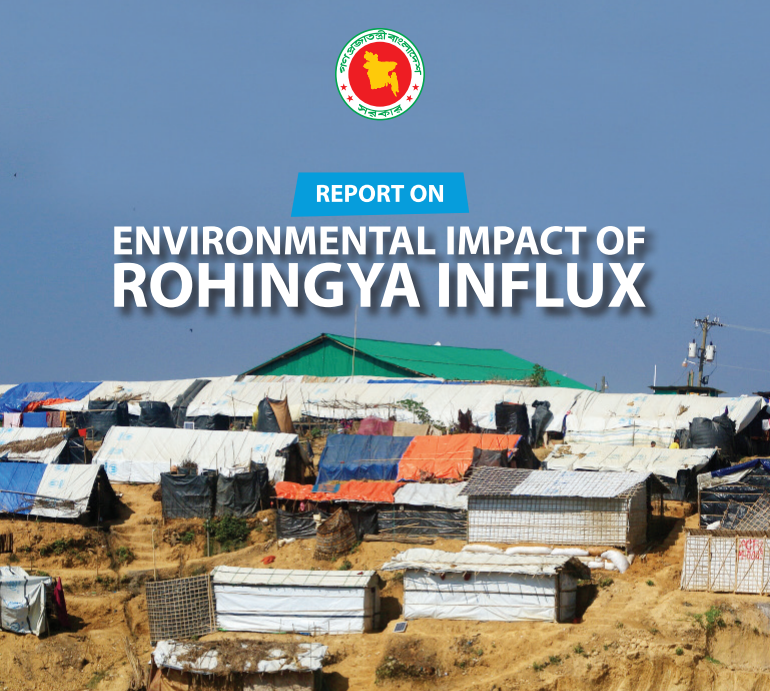This Rapid Environmental Assessment Study evaluates the Environmental Impacts of Rohingya Influx in Bangladesh.
Environmental Assessment Study evaluates the Environmental Impacts of Rohingya Influx in Bangladesh.
An estimated 600,000 refugees, mainly the Rohingya, have fled violence across the border from Myanmar into Cox۪s Bazar and the Chittagong Hill Tracts since August 2017. A Rapid Environmental Assessment Study was initiated by the Ministry of Environment and Forest (MoEF) of Bangladesh and by the United Nations Development Programme (UNDP) and UN Women to assess the environmental impacts of the Rohingya influx into Bangladesh and propose a series of actions to address the main environmental risks. The UN Environment/OCHA Joint Unit deployed one expert through the Swiss Agency for Development and Cooperation to support the assessment. The study found significant adverse impacts on various environmental components have been caused both by the direct footprint of the Rohingya camps and by increased anthropogenic pressure far beyond the boundaries of the area of the camps. The study outlined a number of recommendations to implement mitigation measures and offset programmes.
Consult the mission report here.